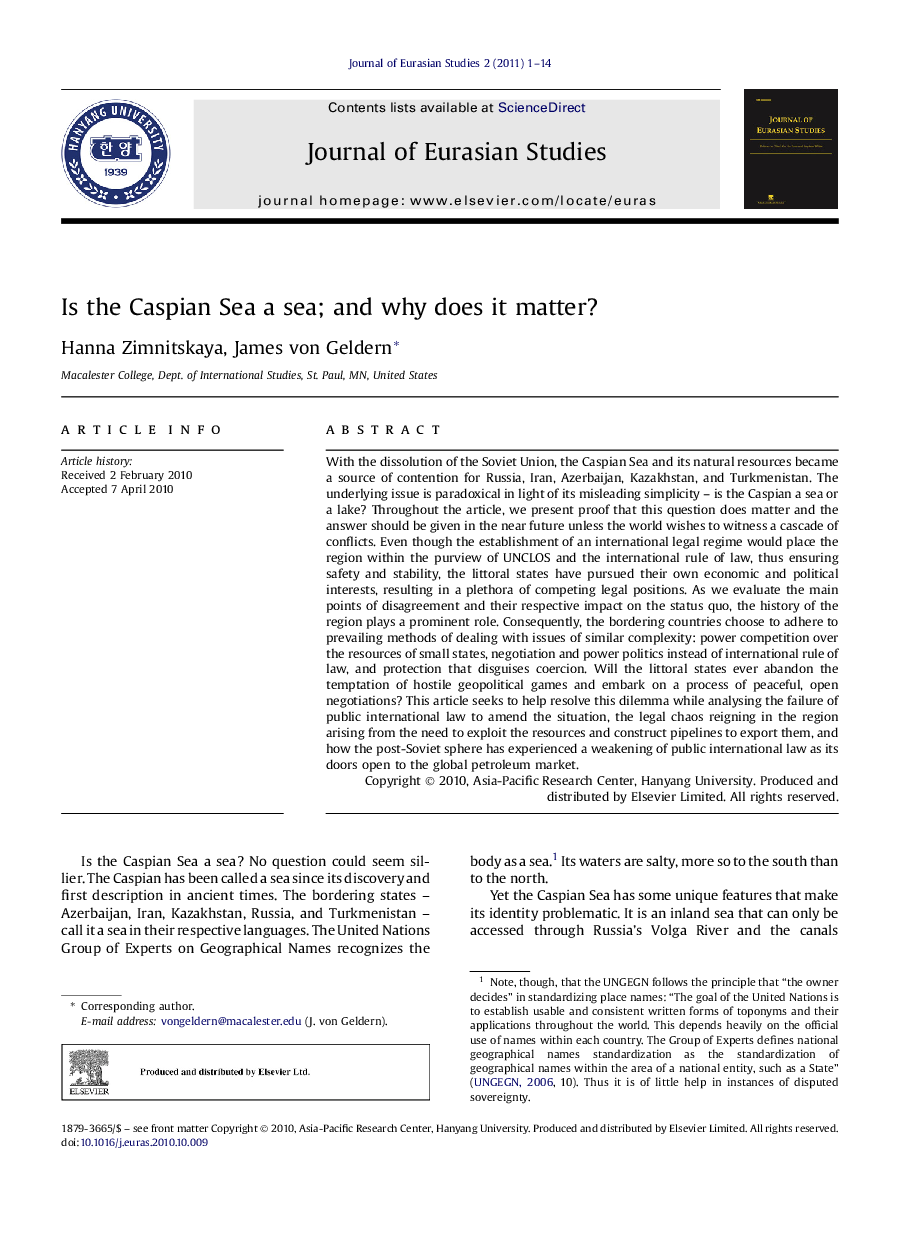| Article ID | Journal | Published Year | Pages | File Type |
|---|---|---|---|---|
| 1127285 | Journal of Eurasian Studies | 2011 | 14 Pages |
With the dissolution of the Soviet Union, the Caspian Sea and its natural resources became a source of contention for Russia, Iran, Azerbaijan, Kazakhstan, and Turkmenistan. The underlying issue is paradoxical in light of its misleading simplicity – is the Caspian a sea or a lake? Throughout the article, we present proof that this question does matter and the answer should be given in the near future unless the world wishes to witness a cascade of conflicts. Even though the establishment of an international legal regime would place the region within the purview of UNCLOS and the international rule of law, thus ensuring safety and stability, the littoral states have pursued their own economic and political interests, resulting in a plethora of competing legal positions. As we evaluate the main points of disagreement and their respective impact on the status quo, the history of the region plays a prominent role. Consequently, the bordering countries choose to adhere to prevailing methods of dealing with issues of similar complexity: power competition over the resources of small states, negotiation and power politics instead of international rule of law, and protection that disguises coercion. Will the littoral states ever abandon the temptation of hostile geopolitical games and embark on a process of peaceful, open negotiations? This article seeks to help resolve this dilemma while analysing the failure of public international law to amend the situation, the legal chaos reigning in the region arising from the need to exploit the resources and construct pipelines to export them, and how the post-Soviet sphere has experienced a weakening of public international law as its doors open to the global petroleum market.
